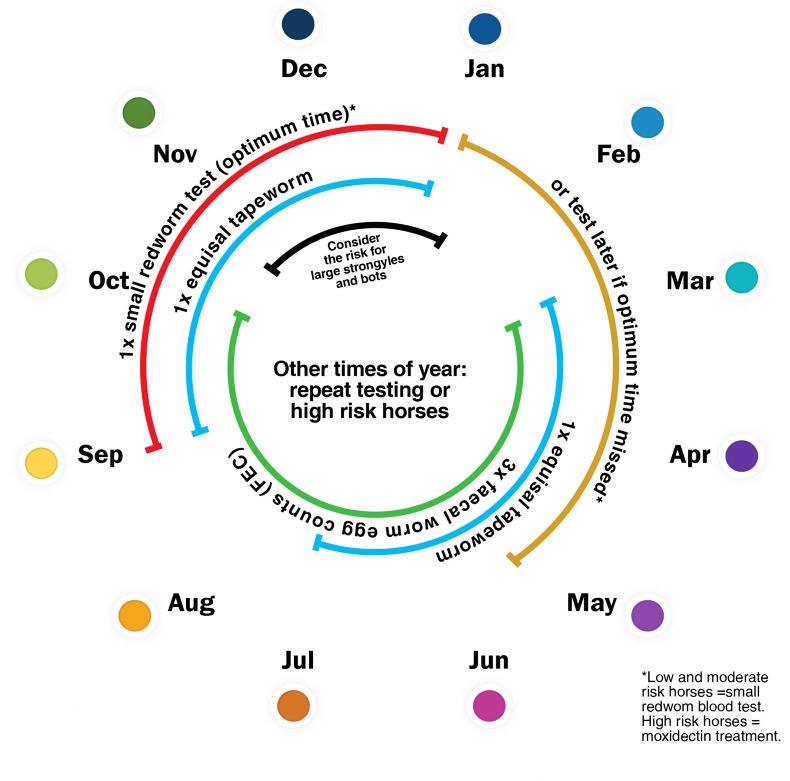ENGLISH company Austin Davis Biologics (ADB) recently announced that they will be launching a new blood test for diagnosing small redworm (cyathostomin) infections in horses this autumn.
Until now it has not been possible to test for encysted small redworms as faecal egg counts (FECs), which are the traditional means for testing for worms, only detect the presence of egg laying adult worms.
The test was invented at the Moredun Research Institute (MRI) and is the first of its kind. It enables detection of all stages of the small redworm life cycle, including the all-important encysted larval phase. The encysted larval phase is when the small redworm burrow into lining of the intestine.
Encysted small redworms can be very dangerous to horses. The greatest danger occurs when a horse has a large burden of encysted larvae which emerge on mass from the intestinal wall. Clinical symptoms of such an occurrence can include diarrhoea and colic, which can be fatal. Because of this routine winter treatment to target small redworm at this stage has become a recommended practice.
Small redworms are the most common gastrointestinal parasites in horses. The only wormer capable of eliminating encysted small red worm is Moxidectin.
Worm resistance to this wormer remains low and in order to maintain its effectiveness treatment programmes are required to ensure that the wormer is only administered when really needed.
The new diagnostic blood test will be commercially available to veterinary surgeons.
The test will detect all intra-host stages of small redworm and thus it will enable veterinary surgeons to make differential diagnosis as well as informed treatment decisions.
If any horse owners are interested in getting their horse tested they should contact their own veterinary surgeon who can contact ADB and register for the diagnostic test.”

Comment
The blood test was developed by the Prof Jacqui Matthews’ group at the MRI, which is mainly funded by The Horse Trust. ADB has worked with the Matthews group in developing the blood test for commercialisation.
ADB’s Dr Corrine Austin said: “We are thrilled to be making this test available to horse owners after extensive research has been conducted to achieve high accuracy. ADB are now developing laboratory ELISA kits to enable independent veterinary laboratories to conduct blood testing; these kits are expected to reach market during 2020.
“Research into the saliva-based test is kits are expected to reach market during 2020. Research into the saliva-based test is ongoing and is expected to be commercialised several years from now,” she added.
Professor Matthews commented: “It is great to see the commercialisation of this much needed test to support sustainable worm control in horses. The test fills an important gap in our diagnostic toolbox and will enable horse owners to work with their veterinarians in targeting anthelmintic treatments against cyathostomin infections and hence help protect these important medicines for the future.”
Rhona Macdonald, business development manager at MRI said: “We are delighted that the research has led to the development of a new blood test to help diagnose small red worms in horses and that the test is now available through Austin Davis Biologics.”


 This is a subscriber-only article
This is a subscriber-only article
 It looks like you're browsing in private mode
It looks like you're browsing in private mode






SHARING OPTIONS: